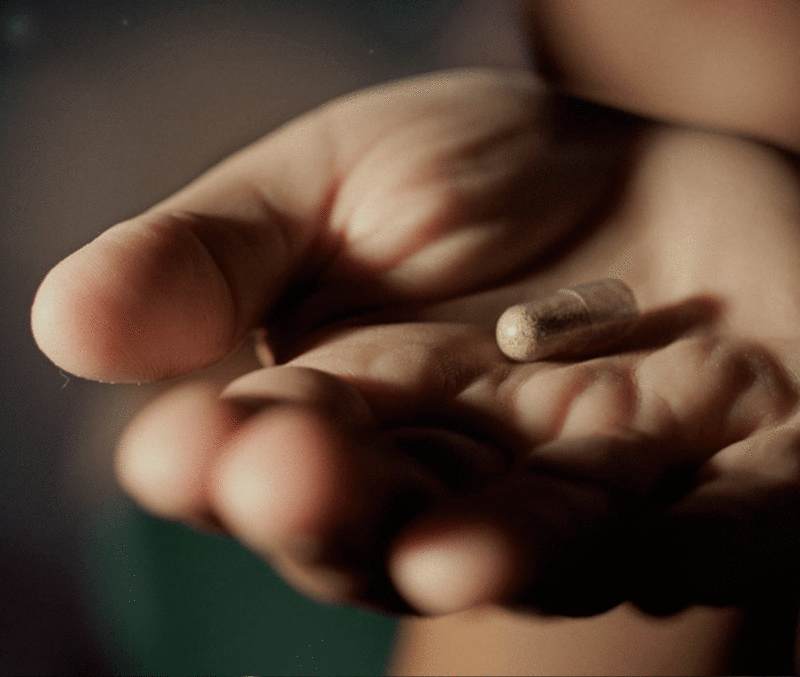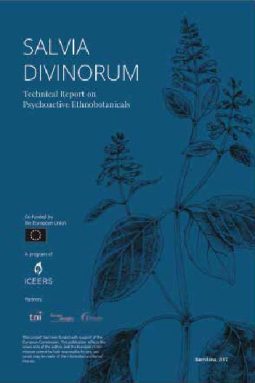As overdose incidents rise to alarming rates in both North America and the European Union, there is an urgent need to find better treatments for addiction. Ibogaine, a substance derived from the root bark of an African plant (Tabernanthe iboga) and historically used in ethnomedicine in traditional communities, is showing promise for lasting reductions in drug use, withdrawal, and cravings. Ibogaine is a natural alkaloid that has been used in the last decades as an adjuvant for the treatment of opiate withdrawal.
Opioid overdose deaths at crisis levels
The number of opioid overdose deaths have increased alarmingly in the United States, Canada and the European Union. According to the US government Centers for Disease Control and Prevention, since 1999 the number of deaths due to opioid overdose (including prescription opioids and heroin) has quadrupled, and between 2000 to 2015 more than half a million US residents died from an overdose. In 2016, ninety-one US residents died from an opioid overdose every day. The situation has become so severe that it has been declared an epidemic, leading the US government to draft a special law about the abuse and treatment of opioid addiction.
The situation in Canada is also dire, where in 2016 seven people were dying each day from an overdose. Responses are being organized at national and regional levels and public health emergencies have been declared in the provinces of British Columbia and Alberta.
While the situation in the European Union is less dramatic, it is no less troubling. The EMCDDA (European Monitoring Centre for Drugs and Drug Addiction) states: “Europe’s opioid problem remains a central issue in the 2016 analysis, reflecting the significant impact of these drugs on mortality and morbidity. We are now seeing an increasingly complex relationship between the use of heroin and synthetic opioids, accompanied by a worrying increase in overall estimates of opioid-related deaths.”
In the case of Spain, the situation has stabilized since the 1990’s: 0.3% of the population has consumed heroin in the last 30 days. However, there are currently 58,291 people in Spain receiving methadone maintenance treatment (MMT).
Harms related to methadone use
Although methadone has helped millions of people discontinue heroin use, and thus reduce the harm associated with its use (infectious diseases, crime, marginalization, etc.) it can also produce iatrogenic addiction, which is difficult for many users to overcome. Many of these methadone patients previously had problems with heroin addiction but are now perfectly integrated into their environments, with no significant problems other than their physiological dependence to methadone.
Apart from the long-term negative physiological effects of continued use of methadone, primarily cardiac issues,[1] one recent study also found that people stabilized with high doses of methadone in maintenance treatment have more medical, cognitive, and emotional problems and a reduction in quality of life compared to people who have managed to complete treatment.[2]
New ibogaine research shows promise for treating methadone dependency
As noted, since the 1960’s the properties of ibogaine have been known to reduce and/or eliminate opioid abstinence syndrome in both research animals[3] as well as humans.[4] The popularization of ibogaine as a possible anti-addictive drug has resulted in many people on methadone wanting to cease their methadone dependency by using ibogaine. However, ibogaine is a substance that brings with it a high risk of cardiac toxicity, which, combined with the cardiac toxicity that methadone causes, means that its use for treating methadone dependence should only be done in very controlled settings and under strict medical supervision.
Recently, a clinical case study undertaken by ICEERS* was published in the Journal of Psychedelic Studies, which documents how a person was successfully detoxified from methadone using low but increasing doses of ibogaine.[5] The ICEERS support service, in collaboration with Pangea Biomedics, supervised the detoxification of a 47-year-old woman who decided to use ibogaine to eliminate her dependency to methadone, which she had been taking for 17 years (37 mg daily before beginning the treatment.) While under constant medical and psychological supervision (including EKG monitoring), the woman alternated low, increasing doses of ibogaine with a progressive reduction of her methadone consumption over a period of 6 weeks.
Ibogaine treatment
After taking her dose of methadone, she waited for the onset of withdrawal symptoms. When they appeared, she took a 300 mg dose of ibogaine. When the abstinence symptoms appeared again, she took half of her maintenance dose of methadone. This process was repeated, with the patient alternating increasing doses of 100mg of ibogaine with a reduction to half of the previous dose of methadone such that after a final dose of 600 mg of ibogaine her withdrawal symptoms disappeared completely. One year after the treatment the patient remained abstinent from using methadone or other prescription opioids. She continued to occasionally use heroin (via nasal insufflation), however much less frequently than when she was on methadone.
Ibogaine, like many other medical treatments, is a safe substance if administered in a controlled medical setting. It is difficult for total detoxification to be achieved by administering a single high dose of ibogaine because of the long half-life of methadone in the body, as well as because of the added cardiac risks associated with high doses.[6] For this reason it is essential that clinicians intending to use this approach be well trained in this methodology, which took several years to develop, and that treatments are performed in a vigilant manner, in closely monitored medically supervised settings.[7]
The future of ibogaine treatment
Despite the promising results from this case study and several others,[8] ibogaine’s legal status remains a barrier for conducting more research and for integrating ibogaine into existing treatment systems. The substance has been illegal in the USA since 1967 (classified as a hallucinogen in Schedule 1) and is also scheduled in 9 countries in the European Union. In other countries, ibogaine is unregulated (i.e. neither approved nor illegal), except for in Brazil, New Zealand, and South Africa where it is regulated as a pharmaceutical for use by licensed medical practitioners.
Additional clinical studies are needed to verify that low dose ibogaine treatment is effective and safe for methadone detoxification. If such a treatment program, which is both cost efficient and easy to control in a medical setting, proved effective, the number of lives that could be saved of people struggling with opioid use would be incalculable.
* ICEERS would like to thank and acknowledge the study team: Clare Wilkins, Rafael G. dos Santos, Marc Aixalá, Pep Cura, Estefanía Moreno, Miguel Ángel Alcázar-Córcoles, Jaime E. C. Hallak, and Jose Carlos Bouso. If you have any questions about this research, please get in touch.
[1] Chen A, Ashburn MA. (2015) Cardiac Effects of Opioid Therapy. Pain Med. 16 Suppl 1: S27-31.
[2] Pedrero-Pérez, E. J., & MethaQoL, G. (2016). Methadone dosage and its relationship to quality of life, satisfaction, psychopa- thology, cognitive performance and additional consumption of non-prescribed drugs. Adicciones. 29: 37–54.
[3] Belgers, M., Leenaars, M., Homberg, J. R., Ritskes-Hoitinga, M., Schellekens, A. F., & Hooijmans, C. R. (2016). Ibogaine and addiction in the animal model, a systematic review and meta-analysis. Translational Psychiatry, 6(5), e826.
[4] dos Santos, R. G., Bouso, J. C., Hallak, J. E. C. (2017). The antiaddictive effects of ibogaine: A systematic literature review of human Studies. 1(1): 20–28. Journal of Psychedelic Studies.
[5] Wilkins, C., dos Santos, R. G., Solá, J., Aixalá, M., Cura, P., Moreno, E., Alcázar-Córcoles, M. A., Hallak, J. E. C., Bouso, J. C. (2017). Detoxification from methadone using low, repeated, and increasing doses of ibogaine: A case report. Journal of Psychedelic Studies. 1(1), pp. 29–34.
[6] Schep, L. J., Slaughter, R. J., Galea, S., & Newcombe, D. (2016). Ibogaine for treating drug dependence. What is a safe dose? Drug and Alcohol Dependence, 166, 1–5.
[7] Of critical relevance is the fact that ibogaine and opioids are contraindicated for a variety of factors, including opioid potentiation and qt prolongation, creating a risk of fatality when ingested in close temporal proximity. For this reason it is essential that clinicians intending to use this approach be well trained in this methodology and treatments are performed in a vigilant manner, in closely monitored medically supervised settings. There have been clinics that have tried to reproduce the protocol without prior training, and in these instances the treatments were not successful.
[8] ICEERS researchers, in collaboration with researchers of the University of São Paulo at Ribeirão Preto, also published review of all the human studies where ibogaine has been use for the treatment of drug abuse: dos Santos, R. G., Bouso, J. C., Hallak, J. E. C. (2017). The antiaddictive effects of ibogaine: A systematic literature review of human Studies. 1(1): 20–28. Journal of Psychedelic Studies.
Two additional studies illustrate positive outcomes for ibogaine treatment:
Brown, Thomas Kingsley, Kenneth Alper. (2017). Treatment of opioid use disorder with ibogaine: detoxification and drug use outcomes. The American Journal of Drug and Alcohol Abuse, 1-13.
Noller, Geffrey E., Chris M. Frampton, and Berra Yazar-Klosinski. (2017) Ibogaine treatment outcomes for opioid dependence from a twelve-month follow-up observational study. The American Journal of Drug and Alcohol Abuse. 1-10.
Categories:
NEWS
, Iboga and ibogaine
, RESEARCH & INNOVATION
Tags:
ibogaine
, iboga


